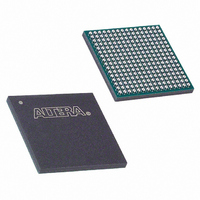EP3C5F256C8N Altera, EP3C5F256C8N Datasheet - Page 85

EP3C5F256C8N
Manufacturer Part Number
EP3C5F256C8N
Description
IC CYCLONE III FPGA 5K 256-FBGA
Manufacturer
Altera
Series
Cyclone® IIIr
Datasheets
1.EP3C5F256C8N.pdf
(5 pages)
2.EP3C5F256C8N.pdf
(34 pages)
3.EP3C5F256C8N.pdf
(66 pages)
4.EP3C5F256C8N.pdf
(14 pages)
5.EP3C5F256C8N.pdf
(76 pages)
6.EP3C10M164C8N.pdf
(350 pages)
Specifications of EP3C5F256C8N
Number Of Logic Elements/cells
5136
Number Of Labs/clbs
321
Total Ram Bits
423936
Number Of I /o
182
Voltage - Supply
1.15 V ~ 1.25 V
Mounting Type
Surface Mount
Operating Temperature
0°C ~ 85°C
Package / Case
256-FBGA
No. Of Logic Blocks
321
Family Type
Cyclone III
No. Of I/o's
182
I/o Supply Voltage
3.3V
Operating Frequency Max
402MHz
Operating Temperature Range
0°C To +85°C
Rohs Compliant
Yes
For Use With
544-2601 - KIT DEV CYCLONE III LS EP3CLS200544-2411 - KIT DEV NIOS II CYCLONE III ED.
Lead Free Status / RoHS Status
Lead free / RoHS Compliant
Number Of Gates
-
Other names
544-2423
EP3C5F256C8N
EP3C5F256C8N
Available stocks
Company
Part Number
Manufacturer
Quantity
Price
Company:
Part Number:
EP3C5F256C8N
Manufacturer:
ALTERA
Quantity:
853
Part Number:
EP3C5F256C8N
Manufacturer:
ALTERA/阿尔特拉
Quantity:
20 000
- EP3C5F256C8N PDF datasheet
- EP3C5F256C8N PDF datasheet #2
- EP3C5F256C8N PDF datasheet #3
- EP3C5F256C8N PDF datasheet #4
- EP3C5F256C8N PDF datasheet #5
- EP3C10M164C8N PDF datasheet #6
- Current page: 85 of 350
- Download datasheet (8Mb)
Chapter 5: Clock Networks and PLLs in the Cyclone III Device Family
Hardware Features
© December 2009
f
1
Altera Corporation
For more information about PLL software support in the Quartus II software, refer to
the
Guidelines
Use the following guidelines to design with clock switchover in PLLs:
■
■
Both inclk0 and inclk1 must be running when the clkswitch signal goes high to
start the manual clock switchover event. Failing to meet this requirement causes the
clock switchover to malfunction.
■
■
■
■
Figure 5–17. VCO Switchover Operating Frequency
Clock loss detection and automatic clock switchover requires that the inclk0 and
inclk1 frequencies be within 20% of each other. Failing to meet this requirement
causes the clkbad[0] and clkbad[1] signals to function improperly.
When using manual clock switchover, the difference between inclk0 and
inclk1 can be more than 20%. However, differences between the two clock
sources (frequency, phase, or both) can cause the PLL to lose lock. Resetting the
PLL ensures that the correct phase relationships are maintained between the input
and output clocks.
Applications that require a clock switchover feature and a small frequency drift
must use a low-bandwidth PLL. When referencing input clock changes, the
low-bandwidth PLL reacts slower than a high-bandwidth PLL. When the
switchover happens, the low-bandwidth PLL propagates the stopping of the clock
to the output slower than the high-bandwidth PLL. The low-bandwidth PLL
filters out jitter on the reference clock. However, you must be aware that the
low-bandwidth PLL also increases lock time.
After a switchover occurs, there may be a finite resynchronization period for the
PLL to lock onto a new clock. The exact amount of time it takes for the PLL to
re-lock is dependent on the PLL configuration.
If the phase relationship between the input clock to the PLL and output clock from
the PLL is important in your design, assert areset for 10 ns after performing a
clock switchover. Wait for the locked signal (or gated lock) to go high before
re-enabling the output clocks from the PLL.
Figure 5–17
clock is lost and then increases as the VCO locks on to the secondary clock. After
the VCO locks on to the secondary clock, some overshoot can occur (an
over-frequency condition) in the VCO frequency.
ALTPLL Megafunction User
ΔF vco
shows how the VCO frequency gradually decreases when the primary
Primary Clock Stops Running
Guide.
Switchover Occurs
Cyclone III Device Handbook, Volume 1
VCO Tracks Secondary Clock
Frequency Overshoot
5–21
Related parts for EP3C5F256C8N
Image
Part Number
Description
Manufacturer
Datasheet
Request
R

Part Number:
Description:
Cyclone III Device Data Sheet
Manufacturer:
ALTERA [Altera Corporation]
Datasheet:

Part Number:
Description:
CYCLONE II STARTER KIT EP2C20N
Manufacturer:
Altera
Datasheet:

Part Number:
Description:
CPLD, EP610 Family, ECMOS Process, 300 Gates, 16 Macro Cells, 16 Reg., 16 User I/Os, 5V Supply, 35 Speed Grade, 24DIP
Manufacturer:
Altera Corporation
Datasheet:

Part Number:
Description:
CPLD, EP610 Family, ECMOS Process, 300 Gates, 16 Macro Cells, 16 Reg., 16 User I/Os, 5V Supply, 15 Speed Grade, 24DIP
Manufacturer:
Altera Corporation
Datasheet:

Part Number:
Description:
Manufacturer:
Altera Corporation
Datasheet:

Part Number:
Description:
CPLD, EP610 Family, ECMOS Process, 300 Gates, 16 Macro Cells, 16 Reg., 16 User I/Os, 5V Supply, 30 Speed Grade, 24DIP
Manufacturer:
Altera Corporation
Datasheet:

Part Number:
Description:
High-performance, low-power erasable programmable logic devices with 8 macrocells, 10ns
Manufacturer:
Altera Corporation
Datasheet:

Part Number:
Description:
High-performance, low-power erasable programmable logic devices with 8 macrocells, 7ns
Manufacturer:
Altera Corporation
Datasheet:

Part Number:
Description:
Classic EPLD
Manufacturer:
Altera Corporation
Datasheet:

Part Number:
Description:
High-performance, low-power erasable programmable logic devices with 8 macrocells, 10ns
Manufacturer:
Altera Corporation
Datasheet:

Part Number:
Description:
Manufacturer:
Altera Corporation
Datasheet:

Part Number:
Description:
Manufacturer:
Altera Corporation
Datasheet:

Part Number:
Description:
Manufacturer:
Altera Corporation
Datasheet:












